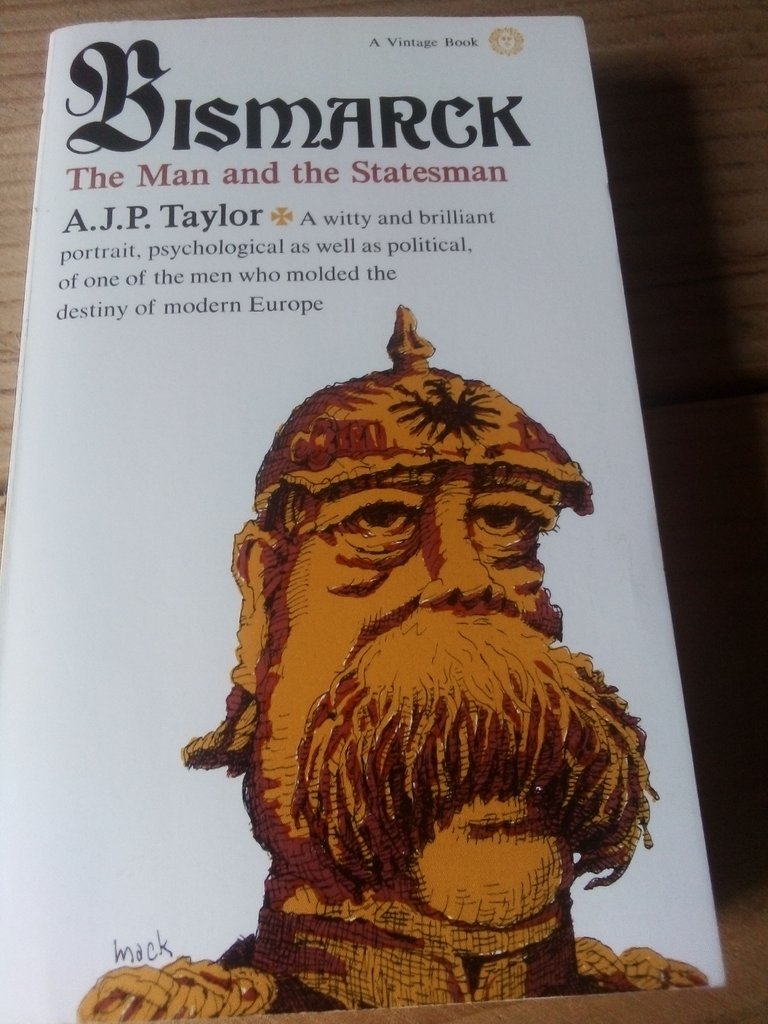
Hello Hivers and Book Clubbers,
Writing about this book, I quickly realized to put it all into one article would make for a hefty long-read. So it's cut in two, for this part to focus on the unification of Germany under Bismarck's leadership. Let's get into it.
Danish succession-confusion
Overlapping jurisdictions don't exist much these days as much as they did in history. In the early 19th century, this was the case for the duchies of Schleswig and Holstein. They were both part of the German Confederation, and thus in the German sphere, but they also had Denmark as their overlord. Schleswig was mostly Danish in the north, and German in the south. Holstein was almost completely German in terms of population.
The death of the Danish king in 1864 caused a crisis, when his successor wanted to annex both duchies into the kingdom of Denmark. This outraged German opinion, and the nationalist movements called for war with Denmark to save the Duchies from being annexed into Denmark. Both Austria and Prussia were called, and both responded, without intervention from any other great power in Europe (so either Great Britain, or France, or Russia). One of the duchies was given to Prussia, the other to Austria.
War with Austria for German mastery
So Prussia under Bismarck had basically been allies against the Danes in 1864. Yet they would fight each other three years later. How did this happen?
The Prussians and Austrians, led by the Habsburg dynasty, had been in competition for centuries, basically, with the Prussians gaining ground as the decades went by. Yet Austria was still considered the stronger, more dominant party, with a wider sphere of influence. They had been Holy Roman Emperors until the HRE was disbanded in 1806, and were nominally still seen as such by the world.
Bismarck realized that a direct conflict would be necessary in order to change this state of affairs. He did not want to destroy Austria, however. He wanted the German states north of the river Main to be subjects of Prussia, thus creating a North German Protestant entity that could be considered a great power, and a bigger German player than Austria was.
The diplomatic back-and-forth lasted for decades. The war lasted under two months. The Prussian army was better trained, disciplined and equipped, and could be mobilized much faster. This last point was essential; in order to get their troops in the field, the Austrians had to mobilize three weeks earlier than the Prussians.
This made the Austrians look like the aggressor, and meant that other powers in Europe stayed neutral. This was especially ruinous for France, which would quickly find this out for itself. The aftermath was simple, in essence; the Prussian demand was fulfilled. All German states north of the river Main were annexed by Prussia, thus forming the North German Confederation.
Bismarck, at this point, considerd his geo-political work done. He thought that further unification would take decades, and would not happen in his lifetime. He also considered the still independent southern German states (Baden, Wurttemberg, Bavaria), which were catholic, to be a bad fit in the mostly Protestant North German Confederation. Yet this process did not take decades, but only four years. Bismarck did not plan this last war like he did that with Austria (the war with the Danes was not planned either), but he made use of it with remarkable efficiency.
Spanish succession, war with the French
The cause of the Franco-Prussian war of 1870 was quite remarkable; it was about the Spanish throne. In short; the Germans wanted a catholic Hohenzollern (family of the Prussian dynasty) to take the throne in Spain, and he was the favorite. The French were opposed. They tried to sneak the nomination through the Spanish parliament, but the French found out.
They demanded an official apology for this state of affairs from the Prussian king. The Prussian king, Wilhelm I, tried to remain civil, but refused to apologize. The telegram in question, however, was edited by Bismarck to seem more rude than it was. Look up the Ems Telegram for details, it is a quite remarkable sequence of events.
This seemingly curt refusal led to a declaration of war by France; Napoleon III was a glory-seeker, though his judgement here was lacking. Taylor notes how the French armed forces were not nearly ready for war. Why this was not considered in the process is baffling. To ask yourself 'are we ready for a war?' would be first on my list, but emotion came ahead of thinking in this case.
The French would know it; the Prussians rolled over them in mere months. At Sedan, Napoleon III himself was captured, and the Prussians soon rolled on to Paris. Again, this seemed a defensiver war for Prussia, and anti-French feeling reached a high-tide in the whole of Germany. All southern German states pledged themselves to Prussia, which led to the unification of Germany as we know it.
Conclusion
The German Empire came into being on the 18th of January, 1871. It would last for 47 years, the end of World War I. Bismarck would be its chancellor for 20 of those years, which will remain outside the scope of my review.
PICK UP THIS BOOK. I got it off of Amazon, so it's probably widely available in many countries. It's a well-paced and very flowing read, and Taylor knows his stuff. I also left out the more personal life and anecdotes, which give the book the humanity that these larger-than-life characters like Bismarck need. I'll be back with more reviewing in the future. Until then,
-Pieter Nijmeijer
(Top image; self-made photo of book cover)
thank you for giving a review. interesting book